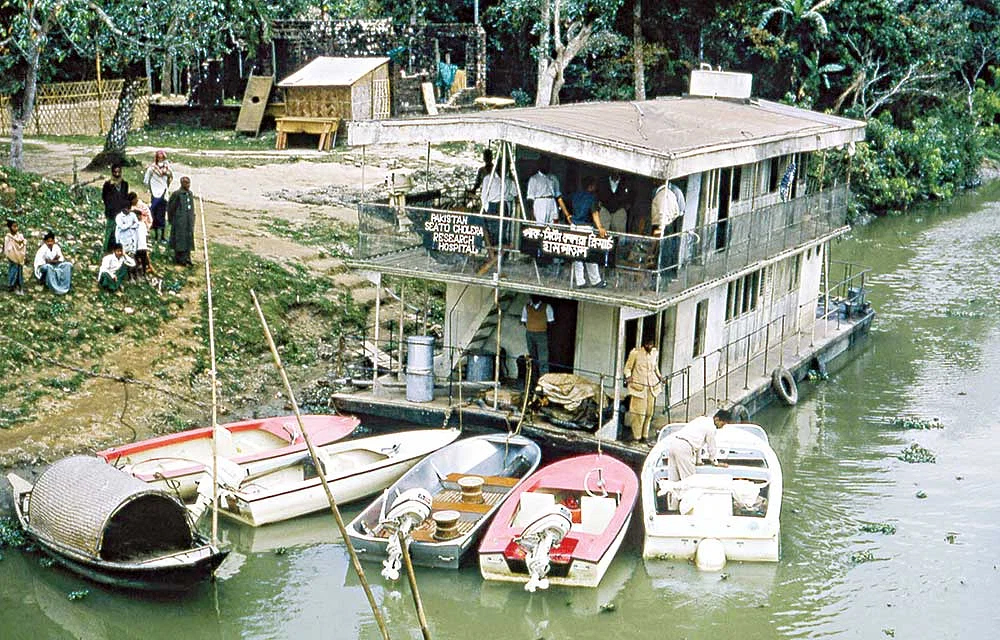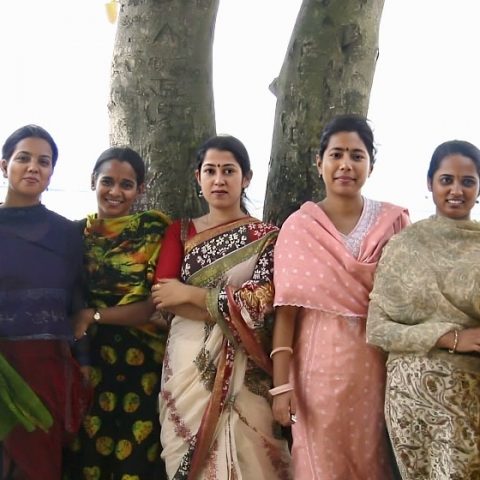 The barge was a floating prison. The British rulers once used this barge to detain river pirates when captured. It was used as a floating prison. Since 1964, this has been in use for icddr,b’s cholera treatment and health research lab. Several renowned public health scientist of the present world have stayed and experimented in the laboratory. Management is now planning to turn it into a museum.
The barge was a floating prison. The British rulers once used this barge to detain river pirates when captured. It was used as a floating prison. Since 1964, this has been in use for icddr,b’s cholera treatment and health research lab. Several renowned public health scientist of the present world have stayed and experimented in the laboratory. Management is now planning to turn it into a museum.
In the early sixties, International Centre for Diarrhoeal Disease Research, Bangladesh (icddr,b) selected Matlab area of Chandpur for cholera research. Since sourcing land and building locally was time consuming, a barge from Narayangonj was brought in. The Hospital was set up on the lower deck of the barge.
icddr,b’s Emeritus scientist Mohammad Yunus joined icddr,b in the sixties. Initially, Matlab was his workplace. Mohammad Yunus said, “In the early days, when it was found hard to get land for the hospital, information appeared that a barge abandoned by the British was anchored at the Narayangonj port. The government granted the permission to take the barge”.
Once there was widespread infestation of pirates at the estuary of Padma and Meghna river. The British Police used to patrol the waterways to deal with inter district piracy. The barge used to be placed in the Meghna river. If they could capture the pirates, the police used to keep them in this barge –according to Mohammad Yunus. In 1947, when the British left the sub-continent, the barge became Pakistan’s property.
The barge was brought in at Matlab in 1964. It was anchored in the Dhonogoda river, a branch of Meghna. A six bed hospital was set up on the lower deck for treatment of cholera patient. Upper deck had the laboratory and scientists’ accommodation.
Matlab was cholera endemic as there were many rivers and swamps in the area. People used to come to the floating hospital directly by boat. Besides, icddr,b had some speedboats which were being used to bring in emergency patients. In 1966 when the hospital was transferred to inland, the barge was used as a guesthouse.
Oral rehydration saline is icddr,b’s groundbreaking discovery. All the three main scientists of this – David Nalin, Majid Mollah and John Rolle – stayed and did their research in this guesthouse of the barge. Among the renowned public health experts of the present time, David Sack, Richard Cash, Henry Mosley, Bob Black, Lincoln Chain used this barge. icddr,b’s present executive director John Clemens stayed in this barge during 1985, while he was researching on oral cholera vaccine.
In 1990, the hospital and laboratory was moved to icddr,b’s own premise. Till then this barge was in the river. To the local people, the barge was the cholera hospital.
This barge was shown with special attention during the visit to icddr,b’s Matlab centre. Security Guard unlocked the barge for this reporter recently on September 6. icddr,b’s officials showed the bars and said pirates used to be locked behind these. Upper deck used to be for scientists’ lodging. Every bed was two storied. After coming back to Dhaka the whole history was learned from Emeritus scientist Mohammad Yunus. This senior scientist said the barge has become a symbol now.

